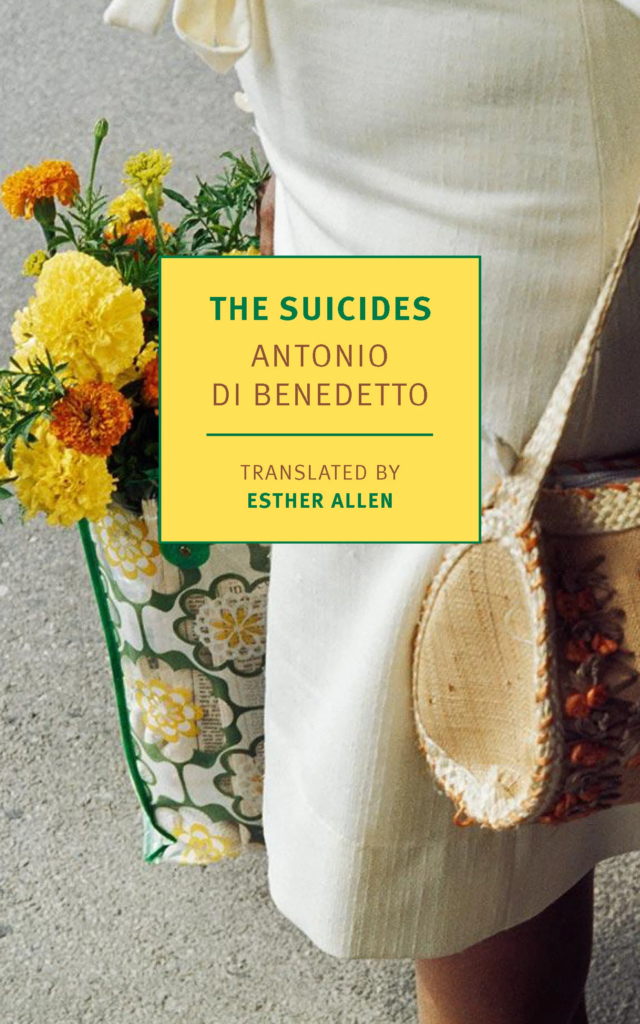The Suicides is the last work of Antonio Di Benedetto’s Trilogy of Expectation. The three books, rather than being united by the same stories or characters, have a theme in common: a narrator on the verge of something. In this case:suicide. The protagonist, an unnamed journalist, starts off the novel reflecting on his father’s self-inflicted death. Over a month, he scours his Argentinian province town, investigating several other suicides, haunted by the thought that he too may soon take his own life. However, the oppressive weight of death is dispersed by the laconic, disaffected voice of the narrator. A suicide occurs, a case unfolds and is never solved. In the same way that the narrator can’t find a final explanation to why the dead have made their choice, so too does his matter-of-fact prose never pierce the surface of the events surrounding him –up until the very end.
In the original Spanish, Di Benedetto distills his clear and incisive prose down to its indispensable elements. He then breathes life into it with plenty of Argentinian colloquial speech and occasional rhetorical flourishes. Some of it was left untranslated, like all the Spanish honorifics and several other words like patrón and tío/a. These small elements transport the reader to a Spanglish literary space, which an American readership usually associates with a space very different from 1960s Argentina: the South of the United States and the North of Mexico. Given that the narrator gives very minimal information as to where exactly the events of the book take place, this can both have the effect of reassociating these Spanish words with a new Argentinian space, and to take them much further North. Similarly, especially when faced with Argentinian mannerisms during the many dialogues, it feels as if the translator was sometimes grasping for a solution in English that didn’t materialize. The result is that some translated passages break down to the point of obscuring what is happening and why. However, Esther Allen manages to then always bring the text back to its austere style and the existential dread flowing beneath. With this concluding book, Allen has completed an excellent introduction to one of Argentina’s major 20th century authors.
– Francesco Fritz

